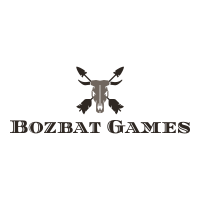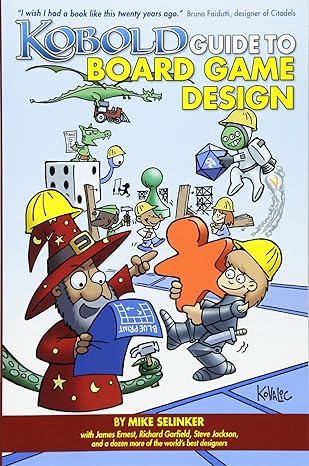Shadowdark RPG is a fantasy adventure game focused on delving into dangerous locations like buried ruins, lost cities, forests, and dragon lairs in search of gold and glory. The game emphasizes that the “Shadowdark” is any place where danger and darkness hold sway, clutching ancient secrets and treasures. The core experience revolves around confronting sinister traps, formidable magic, and ruthless monsters alongside adventuring companions.
The defining characteristics of Shadowdark RPG are highlighted as speed, danger, and simplicity. The rules are described as rules-light and intuitive, encouraging quick decisions rather than extensive rulebook searching. Magic is perilous, and battles are fast and deadly. Being clever is crucial for survival. A key mechanic reinforcing this is that a torch only lasts for one hour of real-world time, creating a sense of urgency as the flame burns low.
Gameplay involves players describing their character’s actions to the Game Master (GM), who determines success and describes the results. Risky actions require making a check, which involves rolling a d20 and adding a stat modifier to meet or beat a Difficulty Class (DC) set by the GM. Standard DCs are Easy (9), Normal (12), Hard (15), and Extreme (18). Combat and adventuring occur in rounds, with each person taking a turn in initiative order. Movement during a turn is typically up to a ‘near’ distance (roughly 30 feet). Distances are generally abstract categories: Close (5 feet), Near (up to 30 feet), and Far (within sight). Advantage (roll twice, use better) and Disadvantage (roll twice, use worse) are used when characters are in strong or weak positions. Rolling a natural 20 on a d20 check results in maximum success (like a critical hit in combat), while a natural 1 results in maximum failure.
Character creation involves determining stats (Strength, Dexterity, Constitution, Intelligence, Wisdom, Charisma), choosing an ancestry (Dwarf, Elf, Goblin, Halfling, Half-Orc, Human), and selecting a class (Fighter, Priest, Thief, Wizard). Characters start at either 0 or 1st level. 0-level characters are fragile peasants and start with basic gear, while 1st-level characters are tougher, have a chosen class, gain hit points based on their class die, and start with gold to buy gear. Characters gain experience points (XP) primarily from treasure and boons acquired during adventures. Leveling up requires earning XP equal to the current level multiplied by 10. Advancement grants new titles, spells, and potentially talent rolls.
Magic is a significant part of the game, used by Priests and Wizards. Casting a spell requires a spellcasting check (d20 + Intelligence modifier for wizards, Wisdom modifier for priests) against a DC of 10 + the spell’s tier. Success means the spell takes effect; failure means it doesn’t, and the caster cannot cast that specific spell again until after a rest. A critical success allows doubling one numerical effect. A critical failure means the spell fails, and wizards must roll on a Wizard Mishap table, while priests incur their deity’s displeasure and must complete ritualistic penance. Some spells have a Focus duration, requiring a spellcasting check at the start of each turn to maintain the effect. Taking damage or being distracted also requires a check to maintain focus. Wizards can learn spells from scrolls, and spellcasters can use scrolls and wands of spells on their list by succeeding on a spellcasting check.
Adventuring in the “Shadowdark” includes navigating environments, often requiring checks for tasks like climbing or swimming. Light sources are crucial, as areas outside of illumination are in total darkness, imposing disadvantage on tasks requiring sight and increasing the risk of random encounters. Resting allows characters to regain hit points and recover stat damage, but resting in dangerous environments risks random encounters based on the location’s danger level (Unsafe, Risky, Deadly). Stealth and surprise mechanics use Dexterity and Wisdom checks, with surprised creatures getting a turn before initiative is rolled. Combat involves making attack rolls against a target’s Armor Class (AC). Characters at zero HP are dying and have a death timer (1d4 + CON modifier rounds), requiring stabilization (DC 15 Intelligence check) to stop the timer. Characters who die are retired from play. Enemies might flee if reduced to half their number or HP and fail a DC 15 Wisdom check.
Downtime activities between adventures include carousing, which allows converting wealth into XP and social encounters, or learning new skills via difficult Intelligence checks.
The Game Master’s role is that of a “world-spinner,” facilitating player triumph by crafting compelling challenges. The Only Rule is that the GM makes the rules, treating the rulebook as a guide, not a constraint. The GM and players are bound by The Pact of goodwill, respect, and fellowship. Core GM ethos emphasizes making time, darkness, and gear precious resources, limiting actions to one per turn, dispensing information freely, keeping distances loose, highlighting danger, rewarding player investment, and using stat checks only for risky actions under pressure. GMs are encouraged to be unpredictable, telegraph danger rather than hiding it, and ensure player choices matter. Random elements, like encounter checks and light mishaps, add to the tension and unpredictability. Character death is expected, especially for 0-level characters, and contributes to the game’s risk and tension.
The game includes sections on randomly generating characters, NPCs, locations (like dungeons and settlements), and random encounters with tables for specific environments (Arctic, Artisan District, Cave, Deep Tunnels, Desert, Forest, Grassland, High District, Jungle, Low District, Market, Mountain, Ocean, River and Coast, Ruins, Slums, Swamp, Tavern, Temple District, Tomb, University District). Monsters have standard statistics (AC, HP, ATK, MV, Stats, AL, LV) and abilities, with options for mutations to make them weirder. Treasure is categorized by quality (Poor, Normal, Fabulous, Legendary) which determines XP awarded, and treasure tables are provided based on monster or character level. Magic items have bonuses, benefits, curses, and some have personalities.
Overall, Shadowdark RPG is designed for players seeking a fast-paced, dangerous, and relatively simple fantasy experience that emphasizes exploration, resource management (especially light), and critical thinking alongside dice rolls and character abilities.



